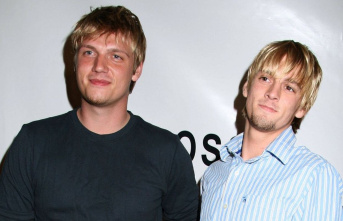it All started in The confessional, a space radio of the University of Buenos Aires. The appointment that there was the argentinean writer Mercedes Halfon promised to leave a few pathways to the modesty, and, already thrown into the adventure, he preferred to take it with a good dose of humor. His secret, in the end, seemed to be rather more manifest than any other: I was going to talk about that “small fault” in their eyes, “which they all agree when it comes to dancing”. He thought that if one had to reveal something more intimate, unknown to the others, the story would be “more rare”, quite different from that she would make her squint.
MORE INFORMATION
Criticism of the book of Mercedes Halfon: 'The dictatorship of the eye', El Greco was strabismic and suffered several stroke, according to a study by Leonardo da Vinci had strabismus, according to a study of his portraitsThe reputation of that uniqueness, now almost completely corrected in the shy look and attentively to the writer (Buenos Aires, 39 years), had never been an ally. It was, without doubt, difficult to deal with, but Halfon is resolved to address it, “first of all, to see in which afforded in scripture,” says one afternoon, sitting in a central cafe of the neighbourhood of Lavapiés, in Madrid. And the result was a hybrid, The work of the eyes, a work published in October Spain (editorial edge, and in which the first-person narration of the protagonist is interspersed with meditations nauseating extracted from his journal, with a writing in the form ensayística and up with surveys in the history of ophthalmology and in the biography of some of its most prominent names.
Halfon aware that the story was born, almost a decade ago, "without a clear objective", as a mere "hypothesis" to check, the "if the organic failures we are". Soon he perceived that this was not enough the first person, "too overwhelming", and then started to combine it with other voices. Before that had time to discover "a story, a kind of history" made up by "hundreds of memories" as a girl with glasses and years of visits to the eye doctor, already as an adult. "The failures we are. The style is born of weakness. We tend to believe that it has to do with the execution of a great way; but this story has convinced me of the opposite: it happens exactly the other way around", holds on the process.
The argentinean writer considered the final text, of just a hundred pages, "a series of metaphors around the vision", and take some of those images up in their own speech. Of the eye, "because it works worse" is forced to work to ameliorate the strabismus, Halfon goes on to speak of the thought "a non-conforming, divergent", and even of scripture, two ways of shying away from the official truth. Or what displays the eye "that works well", that also seems really. "The eyes are united, but not reconciled. That is my way of seeing the world," sums up with an irony that does not change one iota the look serious and quiet kept during the interview.
The life of the protagonist of the story, granted the writer, is identified with that of someone who is showing first misunderstanding to be different and then give evidence of some boasting of their identity. What narcissism? "The obsession is there, it is more neurotic narcissistic, but little by little a be releasing it," says Halfon, for whom the humor "has a role" in this whole process.
Confronted with the question of whether he would have liked to have a normal vision, Halfon, which sum with this, his third book —after one of the poems, the Buckle of grass (2012), and the other of which is a co-author, I ask You for a taxi (2009), along with Fernanda Nicolini— just think about it. Even though lowering the significance of your strabismus —"mine was a problem almost ridiculous, that leaves aside any trace of self-pity"— is sincere: "it Is obvious that he would have preferred to have a correct view"—. The distance that marks this last statement with the protagonist of The work of the eyes and their implicit exaltation of the literature not visual surprises, but Halfon appeals to the prospect antibiográfica which also includes the novel to justify the claim and concludes: "The view is in a sense a dictator, prevailing. Do without it is beautiful. Say that guides us, but I believe that if something has that function is the literature".
Date Of Update: 09 January 2020, 09:00










